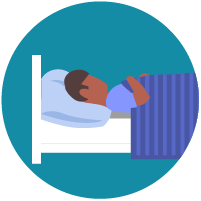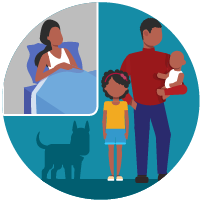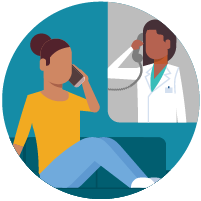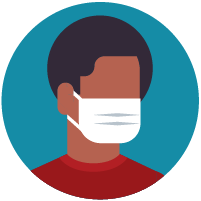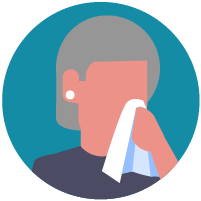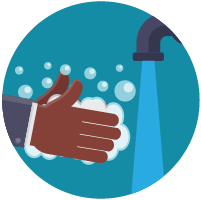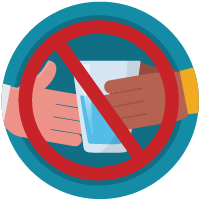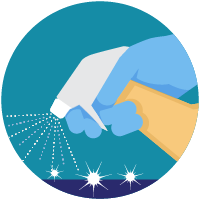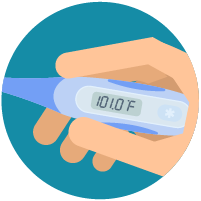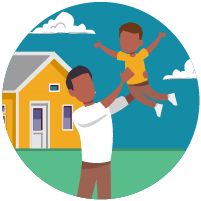Ordinance No. 2020/01-COVID-19
- Details
- Published on Monday, 06 April 2020 12:50
ANDREW COUNTY ORDINANCE ON EMERGENCY MANAGEMENT IN RESPONSE TO COVID-19 PANDEMIC
An ordinance of emergency management in response to COVID-19 pandemic that jeopardizes the safety and welfare of the inhabitants of Andrew County, Missouri.
WHEREAS, the Honorable Governor of the State of Missouri enacted Executive Order 20-02 pursuant to the authority granted under section 44.100 and 44.110, RSMo., to protect the safety and welfare of the inhabitant of the State of Missouri in relation to the COVID-19 pandemic on or about March 13, 2020;
WHEREAS, the reasons the Honorable Governor of the State of Missouri enacted Executive Order 20-02 were detailed in that Order, including the COVID-19 pandemic endangering the safety and welfare of the inhabitants of the State of Missouri, is hereby adopted as part of this Ordinance as if fully set forth herein;
WHEREAS, Randall W. Williams, MD, FACOG, Director of the Department of Health and Senior Services, finding it necessary to protect public health and prevent the further spread of COVID-19, pursuant to the authority granted under section 192.020, RSMo, and 19 CSR 20-20.040 enacted an order to go into effect on March 21, 2020 and again on April 6, 2020, ordering all citizens to stay at home;
WHEREAS, the Director’s Orders dated March 21, 2020 and April 6, 2020 are adopted as part of this Ordinance as if fully set forth herein;
WHEREAS, Andrew County, Missouri, is recognized as a third (3rd) class county within the State of Missouri pursuant to sections 46.123, 48.010, and 48.020, RSMo., as well as Article Six (6) of the Missouri Constitution, as a legal subdivision of the State of Missouri;
WHEREAS, Andrew County, Missouri, is a county without a charter form of government with governing authority to adopt ordinances or resolutions relating to affairs regarding emergency management, specifically relating to the actual occurrence of a natural or man-made disaster of major proportions within the county that jeopardizes the safety and welfare of the inhabitant within the County pursuant to authority of section 49.650, RsMO.;
WHEREAS, Andrew County, Missouri, enacts this Ordinance narrowly tailored to protect the safety and welfare of inhabitants of Andrew County, Missouri; and
WHEREAS, Andrew County, Missouri, authorizes the Andrew County Sheriff, or his deputy officers, to enforce the provisions of this Ordinance subject to the laws of the State of Missouri
WHEREAS, the COVID-19 virus spreads between people who are in close contact with one another through respiratory droplets, and
WHEREAS, as numerous cases of COVID-19 illness and evidence of community transmission have been identified in jurisdictions bordering Andrew County, and
WHEREAS, the Andrew County Health Department does endorse, support and are actively participating in this order, and
WHEREAS, the proclamation declaring a State of Emergency currently in effect authorizes the Presiding Commissioner to take all necessary action to protect Andrew County residents;
NOW, THEREFORE, BE IT ORDERED BY THIS HONORABLE COMMISSION OF ANDREW COUNTY, MISSOURI, AS FOLLOWS:
Section 1.
That to the maximum extent possible, citizens of Andrew County, Missouri, stay at home by remaining within their respective properties, and avoiding contact with people whom they do not reside, and avoiding public places except when necessary to attend work or school or to obtain food, supplies, and medical treatment.
Section 2.
Any intentional gathering of more than (10) people in a single space or room is prohibited. Nothing in this Order prohibits the gathering of members of a household or residence of individuals who reside in such residence.
Section 3.
That for the purposes of this Ordinance the term “Essential Businesses” shall mean businesses or organizations performing functions identified in the “Guidance on Essential Critical Infrastructure Workforce: Ensuring Community and National Resilience COVID-19 Response” Version 2.0 (March 28, 2020), and subsequent versions that may be issued.
Section 4.
That due to unique characteristics and risks associated with transmission dynamics, the likely spread of COVID-19 based on factors of social distancing, the clinical severity of COVID-19, the lack of vaccine or antivirals as treatment options, crowd density, the inability to ensure social distancing to prevent close contact among members of the public, the following shall apply within Andrew County, Missouri for the duration of this order.
- Non-essential business. Businesses which are not Essential Businesses, as defined herein, shall be prohibited from operating.
- Essential businesses. Businesses which are Essential Businesses, as defined herein, shall make reasonable efforts to perform only activities that qualify the business as an Essential Business and other activities that materially support the activities that qualify the business as an Essential Business. Essential Businesses shall make further reasonable efforts to require people to remain separated by physical space of at least six (6) feet.
- Gas stations and Convenience stores. No more than ten (10) people including employees, vendors, and customers may be on the retail sales floor or any un-walled area connected to the retail sales floor, of a gas station or convenience store at any one time. All persons shall maintain 6 foot separation.
- Salons, tattoo parlors, and close-contact services. No business or person shall provide services that require contact between a person providing the service and the customer, unless the service is for necessary medical treatment that has been ordered by a physician and deemed essential. Such services that shall not be provided include, but are not limited to, hair salon services, nail salon services, tattooing, and massage services.
- Animal/Pet Services No business or person shall provide services that require contact between a person and customers animal/pet unless the service is for necessary medical treatment that has been ordered by a veterinarian and deemed essential. Such services that shall not be provided include, but are not limited to, grooming, play dates, and group activities. This shall not prohibit boarding services specifically designated for essential personnel’s pets, businesses who remain open to offer this service shall not provide any other non-essential services.
Section 5.
Every person in Andrew County, Missouri, shall avoid eating or drinking within restaurants, bars, or food courts; provided, however, that the use of drive-thru, pickup, or delivery is allowed throughout the duration of this Ordinance.
Section 6.
People shall not visit nursing homes, long-term care facilities, retirement homes, or assisted living homes unless to provide critical assistance.
Section 7.
All places of public amusement, whether indoors or outdoors, including but not limited to, locations with amusement rides, carnivals, swimming pools, museums, fairs, children’s play centers, roller skating rinks, playgrounds (including school district and play structures in public parks), country clubs, golf clubs, social clubs, fitness centers, and athletic clubs shall be closed to the public.
Section 8.
All public parks and outdoor recreation areas are encouraged to remain open. Because playgrounds may increase the spread of COVID-19, all playgrounds shall be closed with appropriate notices posted.
Section 9.
This Ordinance does not prohibit schools from providing child care and Food and Nutritional Services for those children that qualify. Teachers and staff may enter the building as long as they follow directives of this Ordinance.
Section 10.
This Ordinance does not prohibit people from visiting grocery stores, merchants, gas stations, parks, banks, government, or their place of employment, so long as necessary precautions are taken and maintained to reduce transmission of COVID-19, including maintaining at least six (6) feet of distance between all individuals that are not family members.
Section 11.
For offices and workplaces that remain open, individuals shall practice good hygiene and, where feasible, work from home to achieve optimum isolation from COVID-19. The more that people reduce their public contact, the sooner COVID-19 will be contained and the sooner this Ordinance will expire.
Section 12.
The Andrew County Sheriff, and/or his deputy law enforcement officers, the personnel of the Andrew County Sheriff’s Office, the Andrew County Prosecuting Attorney, the personnel of the Andrew County Prosecuting Attorney’s offices, Andrew County Health Department personnel, and any other county employee or agent shall be immune from personal liability for enforcing the provisions of this Ordinance subject to the laws of the State of Missouri.
Section 13.
A violation of this Ordinance shall be punished by a fine not to exceed five-hundred dollars and zero cents ($500.00) per day of violation. For purposes of calculating the penalty for violating this Ordinance, a month constitutes thirty (30) days.
Section 14.
This Ordinance shall immediately be in full force and effect on the date of its passage by the Honorable Andrew County Commission.
Section 15.
This Ordinance will remain in effect until further notice.
SO ORDERED, PASSED, AND ADOPTED BY UNANIMOUS DECISION THIS 6TH DAY OF APRIL 6, 2020, AT 11:00 A.M.
Honorable Bob Caldwell, Presiding Commissioner
Honorable Gary Bauman West District Commissioner
Honorable Fritz Hegeman, East District Commissioner
Honorable Sarah Miller
Clerk
Andrew County, Missouri
30 Days to Slow the Spread
- Details
- Published on Friday, 03 April 2020 00:19
THE PRESIDENT'S CORONAVIRUS GUIDELINES FOR AMERICA
30 DAYS TO SLOW THE SPREAD
Listen to and follow the directions of your STATE AND LOCAL AUTHORITIES.
IF YOU FEEL SICK, stay home. Do not go to work. Contact your medical provider.
IF YOUR CHILDREN ARE SICK, keep them at home Do not send them to school. Contact your medical provider.
IF SOMEONE IN YOUR HOUSEHOLD HAS TESTED POSITIVE for coronavirus, keep the entire household at home. Do not go to work. Do not go to school. Contact your medical provider.
IF YOUR ARE AN OLDER PERSON, stay home and away from other people.
IF YOU ARE A PERSON WITH A SERIOUS UNDERLYING HEALTH CONDITION that can put you at increased risk (for example, a condition that impairs your lung or heart function or weakens your immune system), stay home and away from other people.
DO YOUR PART TO SLOW THE SPREAD OF THE CORONAVIRUS
Evin if you are young or otherwise healthy, you are at risk and your activities can increase the risk for others. It is critical that you do your part to slow the spread of the coronavirus.
Work or engage in schooling FROM HOME whenever possible.
IF YOU WORK IN A CRITICAL INFRASTRUCTURE INDUSTRY, as defined by the Department of Homeland Security, such as healthcare services and pharmaceutical and food supply, you have a special responsibility to maintain your normal work schedule. You and your employers should follow CC guidance to protect your health at work.
AVOID SOCIAL GATHERING in groups of more than 10 people.
Avoid eating or drinking at bars, restaurants, and food courts - USE DRIVE-THRU, PICKUP, OR DELIVERY OPTIONS.
AVOID DISCRETIONARY TRAVEL, shopping, and social visits.
DO NOT VISIT nursing homes or retirement or long-term care facilities unless to provide critical assistance.
PRACTICE GOOD HYGIENE:
- Wash your hands, especially after touching any frequently used item or surface.
- Avoid touching your face.
- Sneeze or cough into a tissue, or the inside of your elbow.
- Disinfect frequently used items and surfaces as much as possible.
School operations can accelerate the spread of the coronavirus. Governors of states with evidence of community transmission should close schools in affected and surrounding areas. Governors should close schools in communities that are near areas of community transmission, even if those areas are in neighboring states. In addition, state and local officials should close schools where coronavirus has been identified in the population associated with the school. States and localities that close schools need to address childcare needs of crtical responders, as well as nutritional needs of children.
Older people are particularly at risk from the coronavirus. All states should follow Federal guidance and halt social visits to nursing homes and retirement and long-term care facilities.
In states with evidence of community transmission, bars, restaurants, food courts, gyms, and other indoor and outdoor venues where groups of people congregate should be closed.

National Child Abuse Prevention Month
- Details
- Published on Wednesday, 01 April 2020 10:29
April is National Child Abuse Prevention Month

The Andrew County Health Department would like to remind you anyone can and should report suspected child abuse ore neglect. Reporting child abuse and neglect is everyone's responsibility. If you think a child is being mistreated, take immediate action.
Call the Missouri Child Abuse and Neglect Hotline at 1-800-392-3738 or 573-751-3448.
You also can call the National Child Abuse Hotline at 1-800-4-A-Child (1-800-422-4453).
Error on the side of over-reporting. If you have the thought, "Maybe I should call . . . " - DO! Not all calls to the hotline are determined to be abuse/neglect. However, the Children's Division can often provide services and assistance that can help families prevent abuse.
The trauma of child abuse or neglect has been associated with increased risk of depression and suicide attempts, substance abuse, developmental disabilities and learning problems, social problems with other children and with adults, teen pregnancy, lack of success in school, and chronic illnesses, including heart disease, cancer and lung disease, among others.
When you call to make a report, you will be asked for specific information, such as:
- The child's name and location
- The name and relationship (if known) of the person you believe is abusing the child.
- What you have seen or heard regarding the abuse or neglect
- The names of any other people who might know about the abuse
- Your name and phone number (voluntary)
For your baby
Breastfeeding promotes mother and baby bonding. During the skin-to-skin that happens while nursing, mothers release a powerful cocktail of calming hormones, including oxytocin – often referred to as the ‘love hormone’ or ‘cuddle chemical’. Released whenever they are close to their newborn, or even when a mother simply smells or thinks about her baby, this clever hormone helps moms adjust to motherhood in a number of ways. It enhances her ‘mothering behaviors’ – things like caressing, making eye contact, and using affectionate language with her child. It also has anti-anxiety and anti-depressive properties, and may help protect against postnatal depression.
Steps to help prevent the spread of COVID-19
- Details
- Published on Thursday, 26 March 2020 17:28
Steps to help prevent the spread of COVID-19 if you are sick
Follow the steps below: If you are sick with COVID-19 or think you might have COVID-19, follow the steps below to care for yourself and to help protect other people in your home and community.
- Stay home: Most people with COVID-19 have mild illness and are able to recover at home without medical care. Do not leave your home, except to get medical care. Do not visit public areas.
- Stay in touch with your doctor. Call before you get medical care. Be sure to get care if you have trouble breathing, or have any other emergency warning signs, or if you think it is an emergency.
- Avoid public transportation: Avoid using public transportation, ride-sharing, or taxis.
- Stay away from others: As much as possible, you stay away from others. You should stay in a specific “sick room” if possible, and away from other people in your home. Use a separate bathroom, if available.
- See COVID-19 and Animals is you have questions about pets.
- Call ahead: Many medical visits for routine care are being postponed or done by phone or telemedicine.
- If you have a medical appointment that cannot be postponed, call your doctor’s office, and tell them you have or may have COVID-19. This will help the office protect themselves and other patients.
- If you are sick: You should wear a facemask, if available, when you are around other people (including before you enter a healthcare provider’s office).
- If you are caring for others: If the person who is sick is not able to wear a facemask (for example, because it causes trouble breathing), then as their caregiver, you should wear a facemask when in the same room with them. Visitors, other than caregivers, are not recommended.
Note: During a public health emergency, facemasks may be reserved for healthcare workers. You may need to improvise a facemask using a scarf or bandana.
- Cover: Cover your mouth and nose with a tissue when you cough or sneeze.
- Dispose: Throw used tissues in a lined trash can.
- Wash hands: Immediately wash your hands with soap and water for at least 20 seconds. If soap and water are not available, clean your hands with an alcohol-based hand sanitizer that contains at least 60% alcohol.
- Wash hands: Wash your hands often with soap and water for at least 20 seconds. This is especially important after blowing your nose, coughing, or sneezing; going to the bathroom; and before eating or preparing food.
- Hand sanitizer: If soap and water are not available, use an alcohol-based hand sanitizer with at least 60% alcohol, covering all surfaces of your hands and rubbing them together until they feel dry.
- Soap and water: Soap and water are the best option, especially if hands are visibly dirty.
- Avoid touching: Avoid touching your eyes, nose, and mouth with unwashed hands.
- Do not share: Do not share dishes, drinking glasses, cups, eating utensils, towels, or bedding with other people in your home.
- Wash thoroughly after use: After using these items, wash them thoroughly with soap and water or put in the dishwasher.
Clean high-touch surfaces in your isolation area (“sick room” and bathroom) every day; let a caregiver clean and disinfect high-touch surfaces in other areas of the home.
- Clean and disinfect: Routinely clean high-touch surfaces in your “sick room” and bathroom. Let someone else clean and disinfect surfaces in common areas, but not your bedroom and bathroom.
-
- If a caregiver or other person needs to clean and disinfect a sick person’s bedroom or bathroom, they should do so on an as-needed basis. The caregiver/other person should wear a mask and wait as long as possible after the sick person has used the bathroom.
High-touch surfaces include phones, remote controls, counters, tabletops, doorknobs, bathroom fixtures, toilets, keyboards, tablets, and bedside tables.
- Clean and disinfect areas that may have blood, stool, or body fluids on them.
- Household cleaners and disinfectants: Clean the area or item with soap and water or another detergent if it is dirty. Then, use a household disinfectant.
-
- Be sure to follow the instructions on the label to ensure safe and effective use of the product. Many products recommend keeping the surface wet for several minutes to ensure germs are killed. Many also recommend precautions such as wearing gloves and making sure you have good ventilation during use of the product.
- Most EPA-registered household disinfectants should be effective. A full list of disinfectants can be found hereexternal icon.
- Common symptoms of COVID-19 include fever and cough. Trouble breathing is a more serious symptom that means you should get medical attention.
- If you are having trouble breathing, seek medical attention, but call first.
- Call your doctor or emergency room before going in and tell them your symptoms. They will tell you what to do.
- Wear a facemask: If available, put on a facemask before you enter the building. If you can’t put on a facemask, cover your coughs and sneezes. Try to stay at least 6 feet away from other people. This will help protect the people in the office or waiting room.
- Follow care instructions from your healthcare provider and local health department: Your local health authorities may give instructions on checking your symptoms and reporting information.
If you develop emergency warning signs for COVID-19 get medical attention immediately. Emergency warning signs include*:
- Trouble breathing
- Persistent pain or pressure in the chest
- New confusion or inability to arouse
- Bluish lips or face
*This list is not all inclusive. Please consult your medical provider for any other symptoms that are severe or concerning.
Call 911 if you have a medical emergency: If you have a medical emergency and need to call 911, notify the operator that you have or think you might have, COVID-19. If possible, put on a facemask before medical help arrives.
- People with COVID-19 who have stayed home (home isolated) can stop home isolation under the following conditions:
- If you will not have a test to determine if you are still contagious, you can leave home after these three things have happened:
-
-
- You have had no fever for at least 72 hours (that is three full days of no fever without the use medicine that reduces fevers)
AND - other symptoms have improved (for example, when your cough or shortness of breath have improved)
AND - at least 7 days have passed since your symptoms first appeared
- You have had no fever for at least 72 hours (that is three full days of no fever without the use medicine that reduces fevers)
- If you will be tested to determine if you are still contagious, you can leave home after these three things have happened:
- You no longer have a fever (without the use medicine that reduces fevers)
AND - other symptoms have improved (for example, when your cough or shortness of breath have improved)
AND
you received two negative tests in a row, 24 hours apart. Your doctor will follow CDC guidelines.
- You no longer have a fever (without the use medicine that reduces fevers)
-
In all cases, follow the guidance of your healthcare provider and local health department. The decision to stop home isolation should be made in consultation with your healthcare provider and state and local health departments. Local decisions depend on local circumstances.
More information is available here.
Additional information for healthcare providers: Interim Healthcare Infection Prevention and Control Recommendations for Persons Under Investigation for 2019 Novel Coronavirus.


